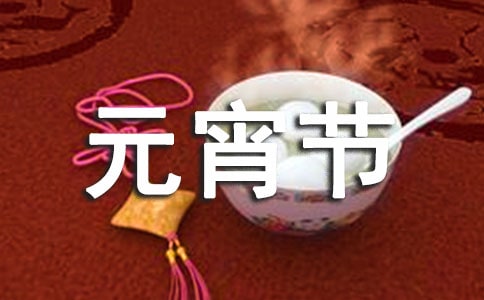- 相關(guān)推薦
關(guān)于元宵節(jié)的來歷介紹英文版
The Lantern Festival falls on the 15th day of the 1st lunar month, usually in February or March in the Gregorian calendar. As early as the Western Han Dynasty (206 BC-AD 25), it had become a festival with great significance. This day's important activity is watching lanterns. Throughout the Han Dynasty (206 BC-AD 220), Buddhism flourished in China. One emperor heard that

Buddhist monks would watch sarira, or remains from the cremation of Buddha's body, and light lanterns to worship Buddha on the 15th day of the 1st lunar month, so he ordered to light lanterns in the imperial palace and temples to show respect to Buddha on this day. Later, the Buddhist rite developed into a grand festival among common people and its influence expanded from the
Central Plains to the whole of today, the lantern festival is still held each year around the country. Lanterns of various shapes and sizes are hung in the streets, attracting countless visitors. Children will hold self-made or bought lanterns to stroll with on the streets, extremely excited. "Guessing lantern riddles"is an essential part of the Festival. Lantern owners write riddles on a
piece of paper and post them on the lanterns. If visitors have solutions to the riddles, they can pull the paper out and go to the lantern owners to check their answer. If they are right, they will get a little gift. The activity emerged during people's enjoyment of lanterns in the Song Dynasty (960-1279). As riddle guessing is interesting and full of wisdom, it has become popular among all
social le will eat yuanxiao, or rice dumplings, on this day, so it is also called the "Yuanxiao Festival."Yuanxiao also has another name, tangyuan. It is small dumpling balls made of glutinous rice flour with rose petals, sesame, bean paste, jujube paste, walnut meat, dried fruit, sugar and edible oil as filling. Tangyuan can be boiled, fried or steamed. It tastes sweet and delicious.
What’s more, tangyuan in Chinese has a similar pronunciation with "tuanyuan”, meaning reunion. So people eat them to denote union, harmony and happiness for the family.
【元宵節(jié)的來歷介紹英文版】相關(guān)文章:
元宵節(jié)的來歷英文版05-18
元宵節(jié)來歷英文介紹05-18
中秋節(jié)的來歷英文版06-21
重陽節(jié)的來歷英文版05-11
元宵節(jié)的來歷05-19
元宵節(jié)的來歷12-16
元宵節(jié)的來歷及習俗05-18
元宵節(jié)習俗的來歷05-18
元宵節(jié)習俗及來歷05-18
元宵節(jié)的來歷問題05-18